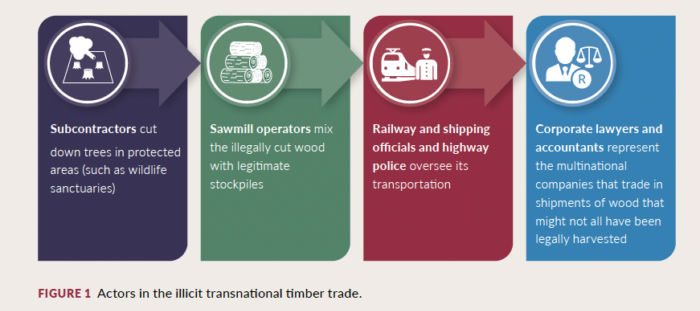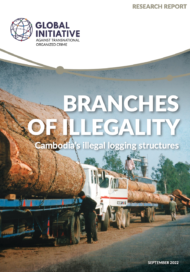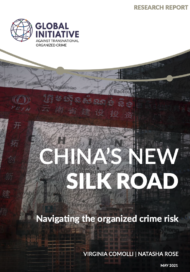Posted on 19 Oct 2021
Timber trafficking from Myanmar to China is responsible for the rapid degradation of natural forests. Illegally harvested wood is used for construction and to manufacture luxury furniture, but, with China’s own forest reserves being protected, the environmental cost of such profitable economic activity is borne by its southern neighbour.
For its part, Myanmar has been too heavily dependent on revenues from timber exports, especially teak, to be able to resist the Chinese market – or that of the European Union, for that matter. While it is tempting to place responsibility on China for the deforestation problem that Myanmar faces, a closer look reveals that cross-border partnerships between Chinese and Myanmar businesses, overseen by government officials on both sides and with qualified participation of some armed groups, have together created a trafficking economy.
This report identifies the routes and various actors that play a role in these illicit flows and the transformation process as the product moves through the supply chain from source to end markets. About 80% of Myanmar’s illegally logged timber is reportedly smuggled to China and India, with China most likely accounting for the lion’s share of these flows. From the state of Kachin in Myanmar to China’s Yunnan province, on the adjacent side of the border, the illegal timber trade is estimated to be worth US$600 million a year (more of which later in the report). Under Myanmar law, all timber exports must exit through the port in Yangon, and overland timber trade is illegal. However, Myanmar’s porous eastern border with the Asian giant has long facilitated movement of illicit timber into south-western China, as have arrangements between complicit actors on both sides.

The report also traces how the illicit timber trade has changed over time as some actors have lost ground, both physically and financially, to competition from elements within the Myanmar military. The 2021 coup in Myanmar is expected to lead to strengthened ties between business communities on both sides of the border, with the province of Yunnan continuing to play its traditionally instrumental role in mediating illicit transactions between China and Myanmar.




